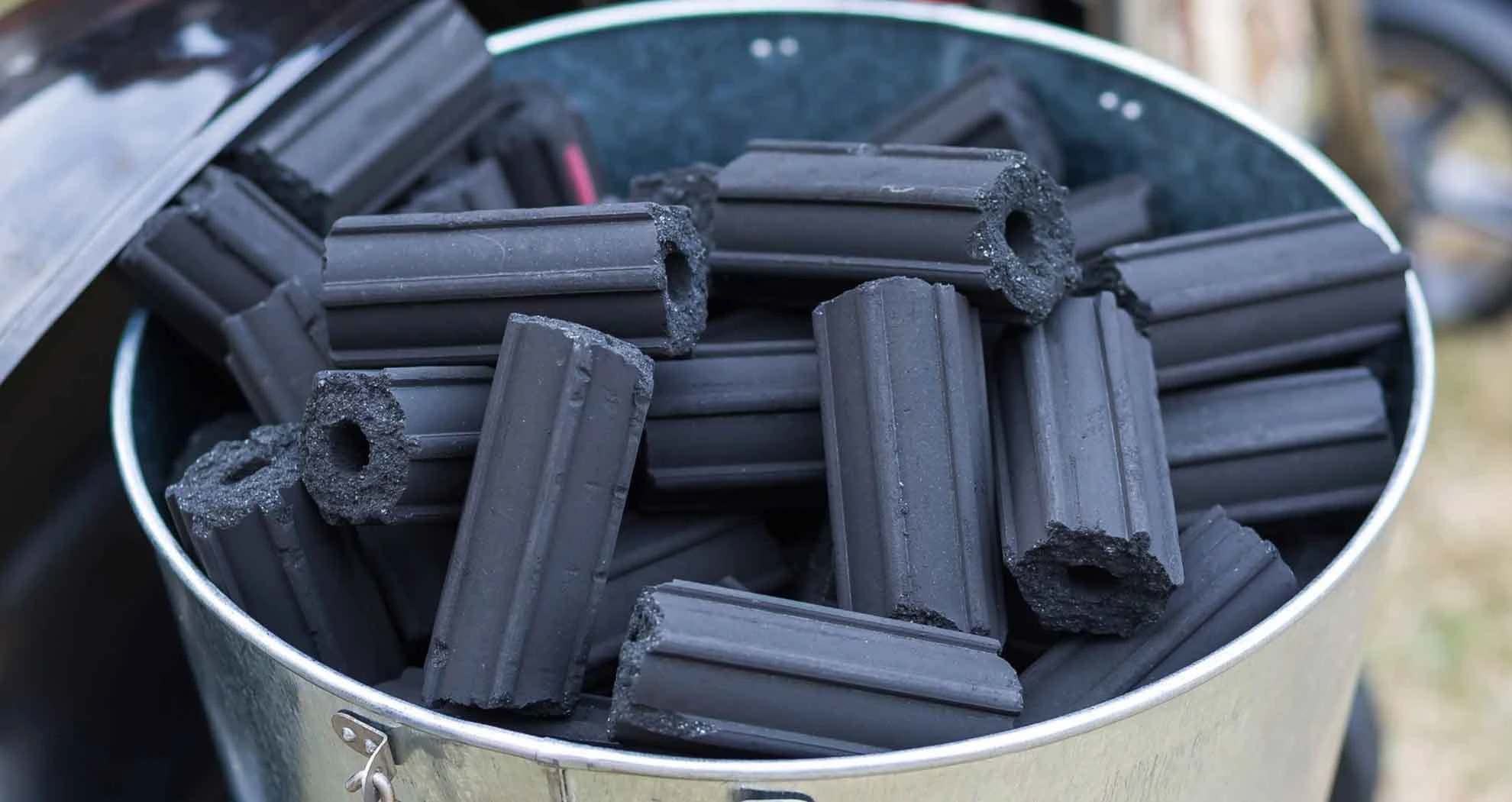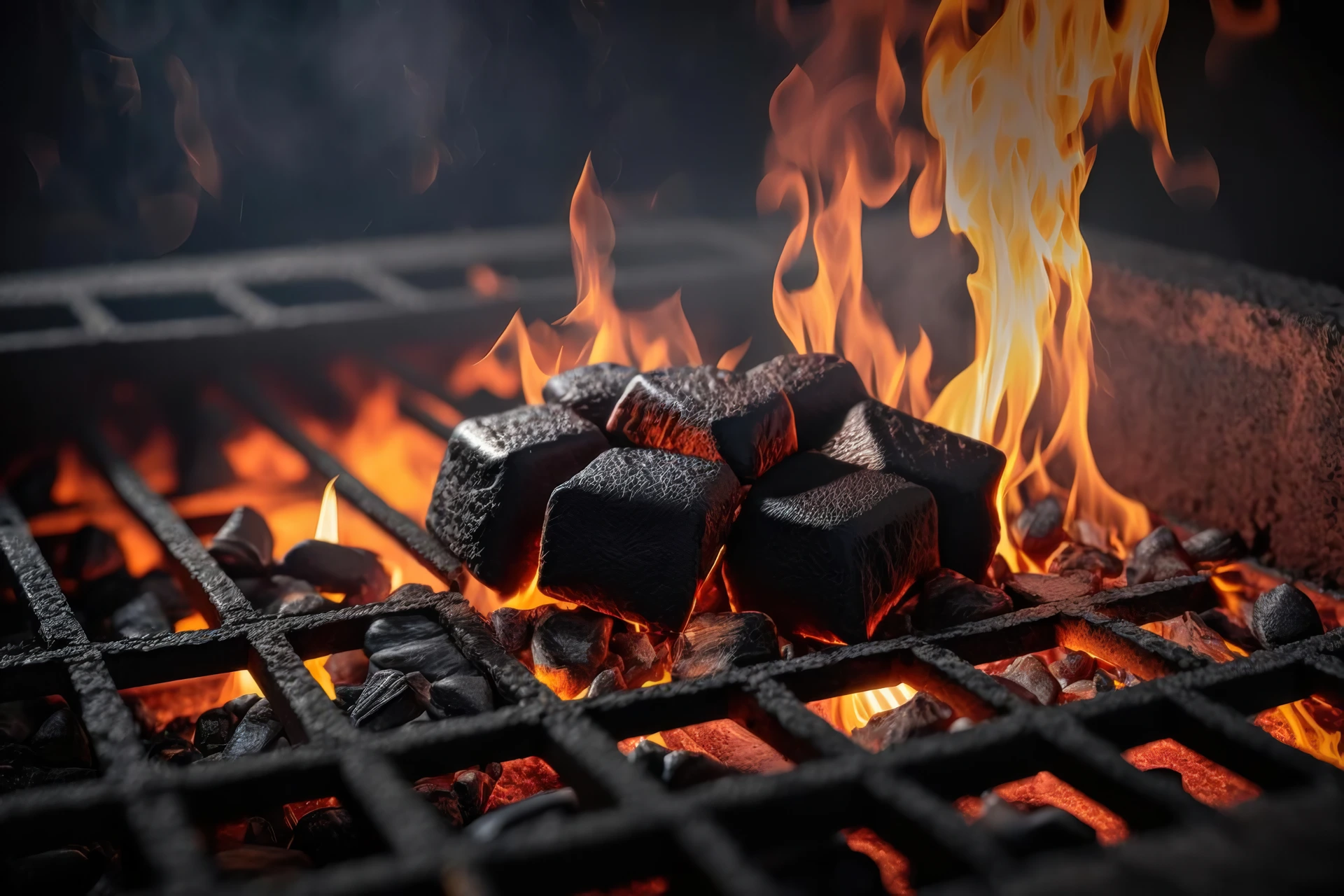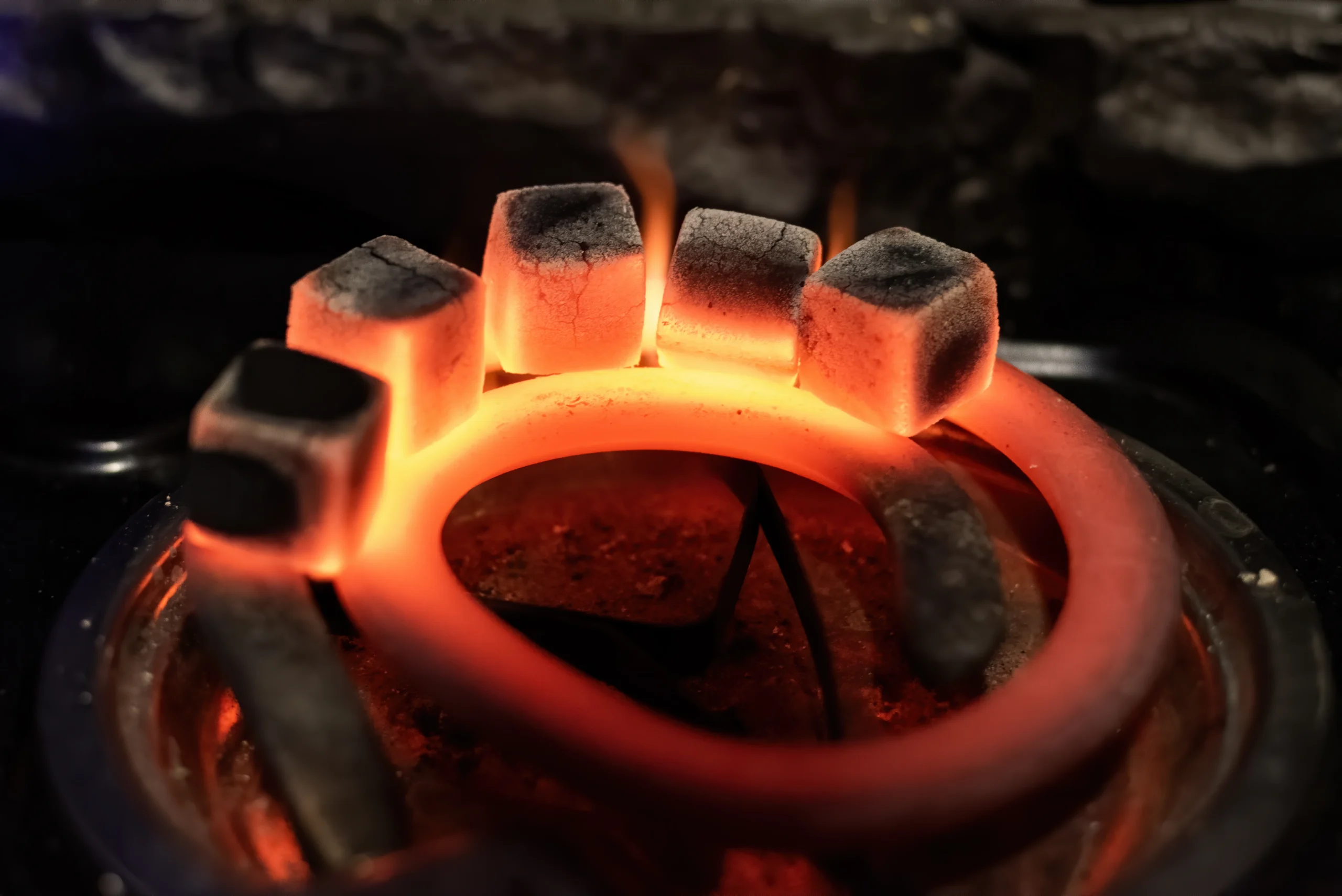The Role of Coconut Shell Charcoal Briquettes in Carbon Emission Reduction in the Industry
November 4, 2024

Industries worldwide are facing increasing pressure to reduce carbon emissions as part of a global effort to combat climate change. One solution gaining popularity is the use of environmentally friendly alternative fuels, such as coconut shell charcoal briquettes. These briquettes are a renewable energy source that not only offers clean combustion but also has a positive impact on reducing carbon emissions. This article will discuss how coconut shell charcoal briquettes contribute to lowering carbon emissions across various industrial sectors, their ecological benefits, and their economic advantages for industries.
Why Choose Coconut Shell Charcoal Briquettes?
Coconut shell charcoal briquettes are a natural, renewable product made from coconut shells. The production process involves converting the shells into charcoal and then compacting them into briquettes. Key reasons for the growing popularity of coconut shell charcoal briquettes include their higher heat endurance, longer burning time, and minimal carbon dioxide (CO2) emissions during combustion. Using this fuel helps industries replace fossil fuels such as coal or oil, known for their high carbon emissions.
The Role of Coconut Shell Charcoal Briquettes in Reducing Carbon Emissions
Here are several reasons why coconut shell charcoal briquettes are effective in reducing carbon emissions in industry:
- Renewable Energy Source
Coconut shell charcoal briquettes are a renewable energy source, unlike finite fossil fuels. Since coconut shells are continuously produced in coconut farming, using them will not deplete natural resources. By utilizing abundant coconut waste, industries can gain access to a more environmentally friendly alternative fuel.
- Cleaner Combustion
One of the primary benefits of coconut shell charcoal briquettes is their clean combustion. These briquettes produce far fewer emissions than coal or wood due to their high pure carbon content and lack of additional chemical compounds. During combustion, coconut shell charcoal briquettes generate minimal smoke and ash, reducing air pollution that harms health and the environment.
- Lower CO2 Emissions
The use of coconut shell charcoal briquettes can significantly reduce carbon dioxide (CO2) emissions produced by industries. This fuel releases lower CO2 emissions than fossil fuels since much of its carbon content has already been absorbed during the photosynthesis process in coconut plants. Thus, using these briquettes on a large scale can help industries reduce their carbon footprint.
- Replacement for Fossil Fuels
Coconut shell charcoal briquettes can serve as a substitute for fossil fuels in various industrial sectors, including food processing, manufacturing, and small-scale power generation. Transitioning to these briquettes allows industries to reduce dependence on coal, one of the fuels with the highest carbon emissions. This shift also supports environmental sustainability programs increasingly demanded by companies in the modern era.
- Reducing Methane Emissions from Organic Waste Burning
Without proper utilization, coconut shells and other organic waste are often discarded or burned, releasing methane (CH4) – a greenhouse gas far more potent than CO2. By processing coconut shells into briquettes, we can avoid direct burning, which pollutes the environment and generates high methane emissions.
Ecological Benefits of Coconut Shell Charcoal Briquettes for Industry
Air Pollution Reduction Beyond CO2, coconut shell charcoal briquettes also produce lower sulfur and nitrogen oxide emissions, which are major causes of air pollution. Replacing fossil fuels with these briquettes helps industries maintain better air quality, especially for communities around factories.
Improved Quality of Life Industries that use coconut shell charcoal briquettes contribute positively to public health. Fossil fuel combustion produces toxic pollutants that are harmful to human health, particularly for workers and residents near factories. More environmentally friendly coconut shell charcoal briquettes can minimize this risk.
Utilizing Organic Waste By using coconut shells as raw material for briquettes, industries not only help reduce organic waste but also contribute to environmental preservation. This recycling process also helps promote economic growth for local communities involved in briquette collection and production.
Economic Benefits of Coconut Shell Charcoal Briquettes for Industry
In addition to ecological benefits, the use of coconut shell charcoal briquettes also has positive economic impacts, including:
More Economical Fuel Costs Coconut shell charcoal briquettes are generally more economical than fossil fuels. Due to their longer and more efficient burn, industries can save on fuel costs in the long term, benefiting companies economically.
Meeting Sustainability Standards Many modern industries are required to adhere to sustainability standards. By switching to coconut shell charcoal briquettes, companies can demonstrate their commitment to the environment and meet the green standards increasingly required in international trade.
Export Opportunities for Coconut Shell Charcoal Briquettes Currently, demand for coconut shell charcoal briquettes is rising in international markets. This provides a substantial opportunity for Indonesian industries to become major producers and expand their export market. Demand from European countries, the United States, and the Middle East continues to grow, and Indonesia can capitalize on this potential to support national economic growth.
FAQ Regarding Coconut Shell Charcoal Briquettes
Q: Are coconut shell charcoal briquettes suitable for large industries?
A: Yes, coconut shell charcoal briquettes can be used for various types of industries, including large-scale ones, provided that energy needs are adjusted. These briquettes are an efficient fuel with low carbon emissions.
Q: What is the main difference between coconut shell charcoal briquettes and coal?
A: Coconut shell charcoal briquettes are a renewable and environmentally friendly fuel with lower carbon emissions, while coal is a fossil fuel that generates high emissions.
Q: What is the environmental impact of using these briquettes?
A: The use of coconut shell charcoal briquettes can help reduce air pollution and carbon emissions, positively impacting the environment.
Conclusion
Coconut shell charcoal briquettes are an environmentally friendly fuel choice that can help industries reduce carbon emissions and air pollution. In addition to their ecological benefits, this fuel also provides economic advantages and can serve as a substitute for fossil fuels. By using these briquettes, industries not only support carbon emission reductions but also contribute to sustainable economic development.




